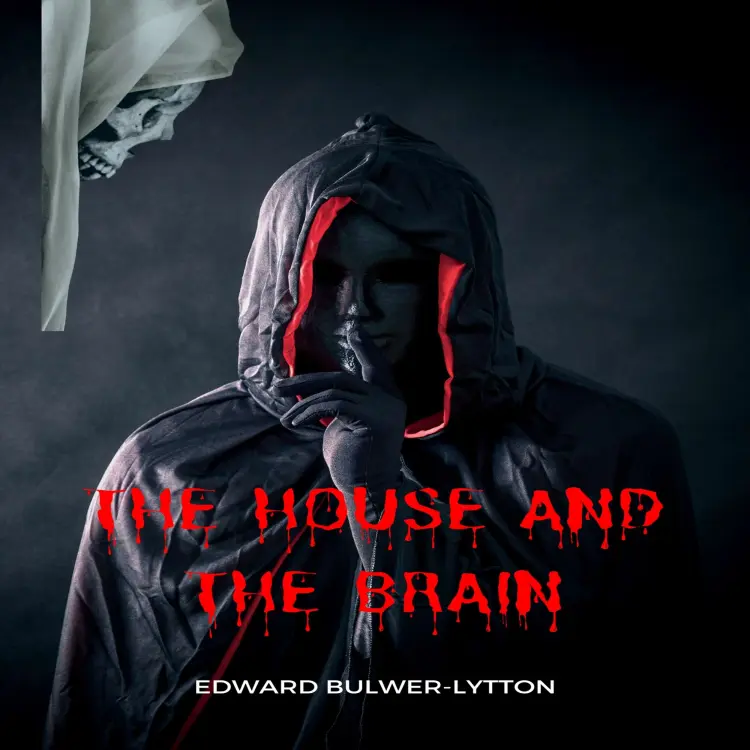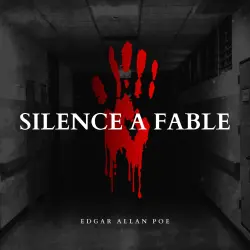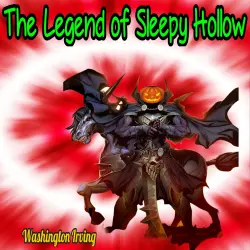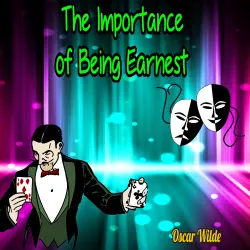
The House and the Brain - The Haunted and the Haunters
Edward Bulwer-Lytton
Unabridged
1 hora 2 minutos
Nota: La reproducción de los audiolibros o de las obras de audio en las respectivas plataformas, por ejemplo Spotify, puede generar gastos. Lismio no tiene ninguna influencia sobre qué audiolibros y obras de audio están disponibles en el servicio.
Algunos artículos contienen enlaces de afiliados (marcados con un asterisco *). Si hace clic en estos enlaces y compra productos, recibiremos una pequeña comisión sin coste adicional para usted. Su apoyo ayuda a mantener este sitio en funcionamiento y a seguir creando contenidos útiles. Gracias por su apoyo.
De la editorial
The Haunted and the Haunters; or, The House and the Brain by Edward Bulwer-Lytton is both a wonderful ghost story and a well-crafted example of Bulwer-Lytton's theory of the supernatural. It represents nearly 20 years' study of paranormal phenomena. On the one hand, it is a chilling tale of ghosts and terror, but on the other, it illustrate the author's theory "that the Supernatural is Impossible, and that what is called supernatural is only a something in the laws of nature of which we have been hitherto ignorant." For him, though, the laws of nature include "the power that in the old days was called Magic, a power of the human will that can affect mental and physical reality and produce the apparently supernatural."
A rationalist Victorian visits a haunted house in order to explain the nature of its ghostly inhabitants. First published in Blackwood's, August 1859.
Edward Bulwer-Lytton
Edward George Earle Lytton Bulwer-Lytton, 1st Baron Lytton PC, was an English novelist, poet, playwright, and politician. Lord Lytton was a florid, popular writer of his day, who coined such phrases as "the great unwashed", "pursuit of the almighty dollar", "the pen is mightier than the sword", and the infamous incipit "It was a dark and stormy night."
He was the youngest son of General William Earle Bulwer of Heydon Hall and Wood Dalling, Norfolk and Elizabeth Barbara Lytton, daughter of Richard Warburton Lytton of Knebworth, Hertfordshire. He had two brothers, William Earle Lytton Bulwer (1799-1877) and Henry, afterwards Lord Dalling and Bulwer.
Lord Lytton's original surname was Bulwer, the names 'Earle' and 'Lytton' were middle names. On 20 February 1844 he assumed the name and arms of Lytton by royal licence and his surname then became 'Bulwer-Lytton'. His widowed mother had done the same in 1811. His brothers were always simply surnamed 'Bulwer'.
A rationalist Victorian visits a haunted house in order to explain the nature of its ghostly inhabitants. First published in Blackwood's, August 1859.
Edward Bulwer-Lytton
Edward George Earle Lytton Bulwer-Lytton, 1st Baron Lytton PC, was an English novelist, poet, playwright, and politician. Lord Lytton was a florid, popular writer of his day, who coined such phrases as "the great unwashed", "pursuit of the almighty dollar", "the pen is mightier than the sword", and the infamous incipit "It was a dark and stormy night."
He was the youngest son of General William Earle Bulwer of Heydon Hall and Wood Dalling, Norfolk and Elizabeth Barbara Lytton, daughter of Richard Warburton Lytton of Knebworth, Hertfordshire. He had two brothers, William Earle Lytton Bulwer (1799-1877) and Henry, afterwards Lord Dalling and Bulwer.
Lord Lytton's original surname was Bulwer, the names 'Earle' and 'Lytton' were middle names. On 20 February 1844 he assumed the name and arms of Lytton by royal licence and his surname then became 'Bulwer-Lytton'. His widowed mother had done the same in 1811. His brothers were always simply surnamed 'Bulwer'.








